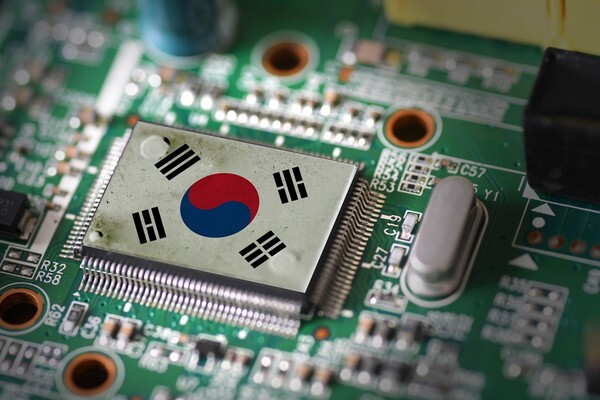
July 1, 2025 – South Korea's exports in June increased by a robust 4.3% year-on-year, reaching $59.8 billion, maintaining a strong upward trajectory. This achievement comes despite increased uncertainty in the global trade environment and tariffs imposed by the US Trump administration. The strong performance was primarily driven by key items such as semiconductors and automobiles. During the same period, imports rose by 3.3% to $50.72 billion, resulting in a trade surplus of $9.08 billion, the largest since September 2018.
Semiconductors Achieve All-Time High Due to Demand for High-Value-Added Products
Semiconductors were undoubtedly the leading item in June's exports. Semiconductor exports surged by 11.6% year-on-year to $14.97 billion, setting a new monthly record. This performance was largely attributed to increased global demand for high-value-added products like High Bandwidth Memory (HBM) and DDR5, coupled with a continuous rise in memory semiconductor prices. HBM, essential for the advancement of Artificial Intelligence (AI) technology, saw explosive demand from AI chip manufacturers like Nvidia, positively impacting South Korea's semiconductor exports. After a slight dip in February, semiconductor exports have increased for four consecutive months since March, once again proving their role as a core engine of South Korean exports.
Automobile Exports Offset US Tariff Impact with EU and Used Car Demand
Automobile exports also hit a record high for June, reaching $6.3 billion. While exports to the US saw a slight decrease due to tariffs, strong exports to the European Union (EU) market, primarily electric vehicles, and an increase in used car exports, drove the overall export growth. As the EU strengthens its carbon neutrality policies and actively promotes electric vehicles, demand for Korean electric cars continues to rise. Furthermore, the revitalization of the global used car market and the quality competitiveness of Korean used cars are also credited with contributing to the export expansion.
Mixed Performance Across Items; Bio-Health and Ships Also Perform Strongly
Out of the 15 major export items, six saw an increase, leading the overall positive trend. Bio-health exports rose by 36.5% to $1.66 billion, ships by 63.4% to $2.5 billion, computers by 15.2% to $1.3 billion, and automotive parts by 2.4% to $1.8 billion, all showing strong performance. Ship exports, in particular, saw a significant increase due to the delivery of high-value-added ship orders coupled with new orders driven by rising sea freight rates. In contrast, petroleum products declined by 2.0% to $3.62 billion and petrochemicals by 15.5% to $3.36 billion due to the impact of weakening international oil prices. This is seen as a complex result of global economic slowdown concerns and China's increasing self-sufficiency in petrochemicals.
Diversified Regional Exports; ASEAN and EU Markets Show Strong Growth
Looking at regional export trends, exports to the US decreased by 0.5% year-on-year to $11.24 billion, and exports to China also fell by 2.7% to $10.42 billion. This appears to be a combined effect of intensifying trade conflicts between the US and China, and the slowdown in the Chinese economy. Conversely, exports to ASEAN (up 2.1% to $9.76 billion), the European Union (up 14.7% to $5.8 billion), India (up 2.3% to $1.58 billion), CIS (up 18.5% to $1.1 billion), Latin America (up 3.3% to $2.4 billion), Japan (up 3.0% to $2.5 billion), the Middle East (up 14.8% to $1.9 billion), and Taiwan (up 31.0% to $4.34 billion) all increased, demonstrating the success of market diversification efforts. Notably, demand for Korean products continues to grow steadily in the European Union and Middle East regions due to expanding infrastructure investment and renewable energy transition policies.
H1 Exports Maintain Previous Year's Level, Trade Surplus Trend Continues
Total exports for the first half of 2025 amounted to $334.7 billion, a marginal 0.03% decrease year-on-year, essentially maintaining the same level. In the first half, semiconductor exports reached an all-time high for the period, increasing by 11.4% to $73.3 billion, driven by demand for high-value products like HBM and DDR5, and a rebound in memory prices. However, automobile exports decreased by 1.7% to $36.4 billion despite strong hybrid car exports, due to US tariffs and increased local production.
Regionally, first-half exports to the US decreased by 3.7% to $62.2 billion, and exports to China decreased by 4.6% to $60.5 billion. Imports decreased by 1.6% to $306.9 billion, resulting in a trade surplus of $27.8 billion for the first half, an improvement of $4.8 billion year-on-year. This solidifies the trade surplus trend that has been sustained since June 2023.
Government Prioritizes Trade Negotiations and Export Support Measures
Minister of Trade, Industry and Energy, Ahn Duk-geun, stated, "First-half exports maintained the previous year's level amidst uncertainties such as US tariff measures, global economic slowdown, and the Middle East crisis. In June, with the launch of the new government, we recorded the highest June performance ever, turning to a positive growth." He added, "The government plans to fully respond to trade negotiations between South Korea and the US, and swiftly prepare export support measures such as providing trade finance and exploring alternative markets." This indicates the government's commitment to maintaining export competitiveness through proactive responses, particularly in light of potential trade policy uncertainties ahead of the US presidential election. The government also plans to expand various policy supports, including increasing trade insurance and providing export vouchers, to assist small and medium-sized enterprises in entering overseas markets.
[Copyright (c) Global Economic Times. All Rights Reserved.]






























